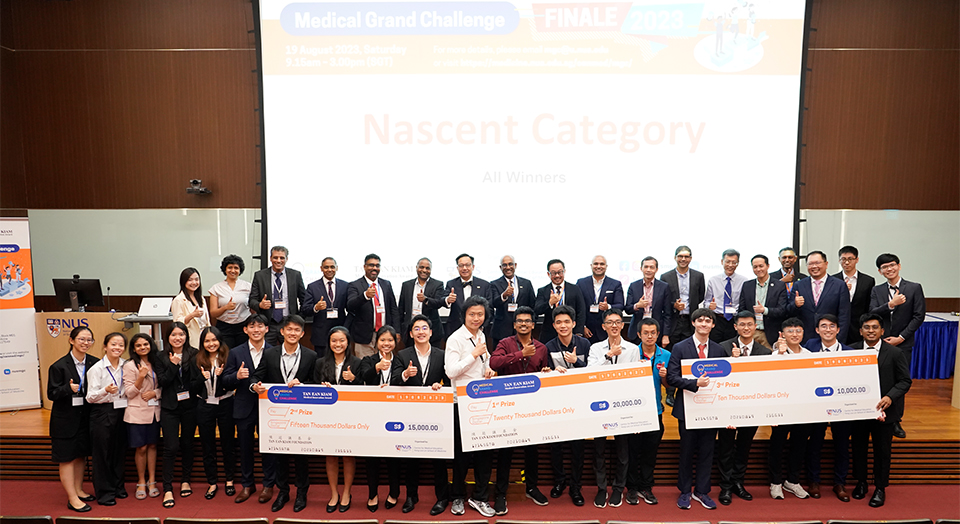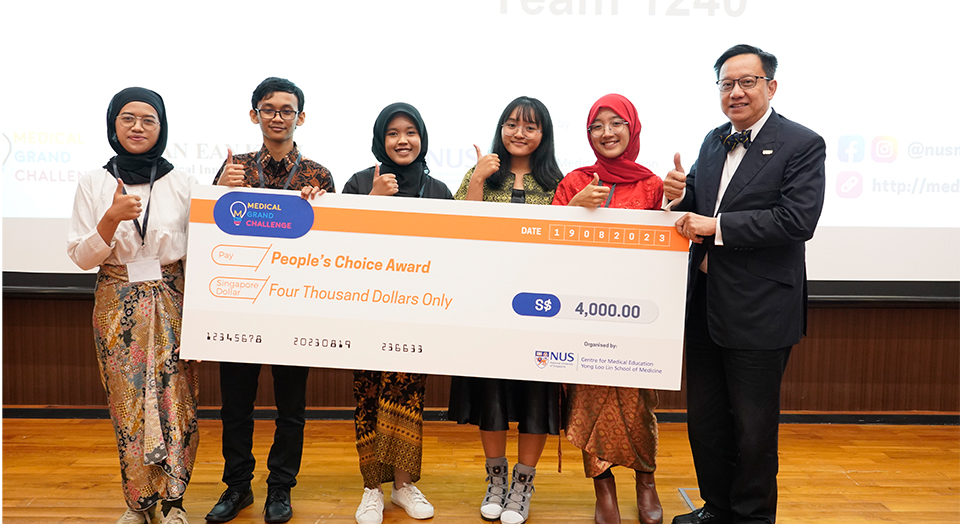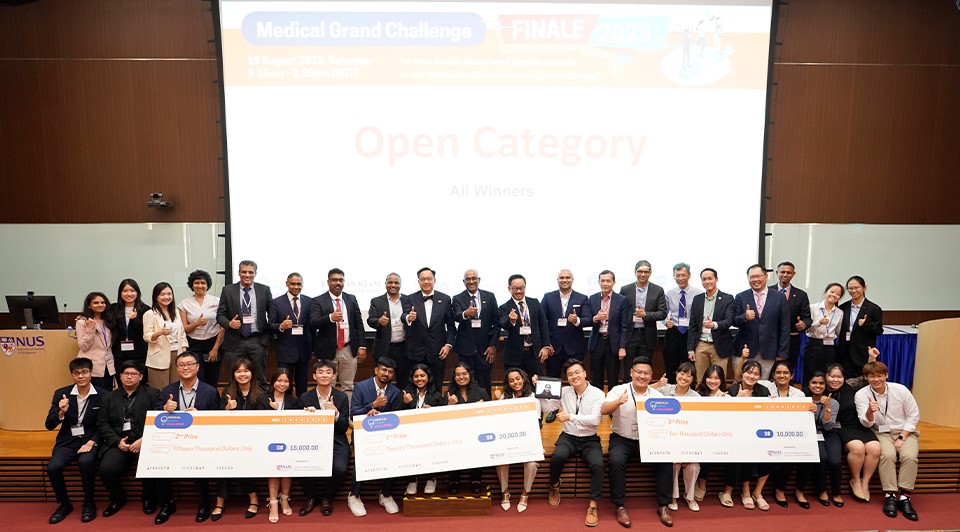Remote physiotherapy rehabilitation system, portable pre-eclampsia detection device sweep top prizes at Medical Grand Challenge Finale 2023
Published: 19 Aug 2023

The top three winning teams from the Nascent Category.
A remote physiotherapy rehabilitation system aimed at helping patients with their exercises at home in real-time, and a portable device to detect early risk of pre-eclampsia in pregnant women, won first prize in the Nascent and Open categories respectively at the Medical Grand Challenge Finale 2023 (MGC).

Team DiabEats won both the People’s Choice Award and Long-Term Sustainability Award.
Team DiabEats, the only overseas team from Indonesia, took both the People’s Choice award and Long-Term Sustainability award for their mobile application that helps diabetic patients to modify and manage their own diets based on a personalised meal plan and food recommendation database, and offers a catering solution based on the patient’s customised meal plan. The People’s Choice Award recognises the project which garnered the most votes during the duration of the challenge, while the Long-term Sustainability award looks at the design’s potential for long-term use.
Team MABLE was presented with the Social Responsibility award for their Mandarin Artificial Intelligence chatbot created to educate women on breast health. The Social Responsibility Award is presented to the project that addresses societal concerns such as ease of use, accessibility and affordability.
The winning projects were part of the showcase of small, but ingenious innovations at the MGC 2023. These novel innovations combined the knowledge and expertise of student teams, comprising the various faculties and schools in NUS, such as medicine, engineering, design, nursing, business and computer science, for this challenge held at the Yong Loo Lin School of Medicine (NUS Medicine).
Now in its seventh run since its launch in 2016, the MGC has stayed true to its mission of challenging cohorts of medical students to think of out-of-the-box solutions that can be translated into real-world application and impact.
Professor Chong Yap Seng, Dean of NUS Medicine, emphasised the importance of getting students to confront real-world problems, to allow them to be more attuned to the realities of problem-solving. “Modern-day problems vary in complexity and require the knowledge and expertise of multiple disciplines to come together to devise a viable solution. The MGC strives to create a realistic scenario where cross-collaborative brainstorming and conceptualising happen concurrently, in order to birth an impactful and useful solution for the common man. Students need to be able to be comfortable in dealing with these complexities, and put their soft and hard skills to the test as they will need to contend with different perspectives and come to a consensus,” he explained.

The top three winning teams from the Open Category.
Click here to read the press release.



